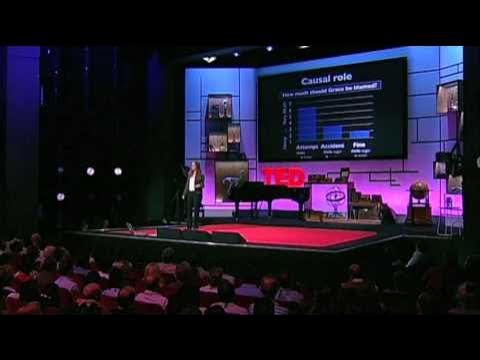BBC Brain Story Documentary Intro
Summary
TLDRIn this intriguing exploration of the human brain, scientist Susan Greenfield reveals how our thoughts, emotions, and memories shape our identity. The series employs unique scanning techniques to visualize thoughts and examines cases like Joe, who can draw two images simultaneously due to his split brain, and a woman who cannot perceive moving objects. Delving into how trauma alters brain function and the biological roots of creativity and love, the program underscores the brain's dynamic nature throughout life, inviting viewers to discover the complex interplay between brain activity and our spiritual experiences.
Takeaways
- 🧠 The brain controls our actions, emotions, and identity.
- 🔍 The series utilizes unique scanning techniques to visualize thoughts.
- 🎨 Joe's split brain allows him to draw two different objects at once.
- 🚶♀️ A woman with brain damage is unable to see moving objects.
- 🌐 Our brains significantly influence our perception of reality.
- ⚔️ Trauma from battle can physically alter a soldier's brain.
- ❤️ Love may be rooted in hormonal responses within our bodies.
- 🔄 The brain is constantly changing from birth to death.
- ✨ Creativity can emerge from unusual neurological conditions.
- 🙏 Spiritual experiences may also have neurological underpinnings.
Q & A
What is the primary focus of Susan Greenfield's research?
-Susan Greenfield's research primarily focuses on understanding how the brain works, including its role in controlling actions, emotions, and memories.
How does the series plan to visualize thoughts?
-The series plans to use a unique form of scanning that enables viewers to actually see a thought in the brain.
What is notable about Joe's condition?
-Joe has a split brain condition, allowing him to draw two different objects simultaneously, demonstrating how brain function can be affected by neurological differences.
What type of brain damage does the woman featured in the series have?
-The woman has brain damage that prevents her from seeing anything that is moving, highlighting the impact of neurological injuries on perception.
In what way does the series explore the relationship between trauma and brain function?
-The series investigates how experiences, such as the terror of battle, can physically change a soldier's brain, illustrating the lasting effects of trauma.
What does the series suggest about the nature of love?
-The series suggests that love may be driven by hormones that surge through our veins, emphasizing the biological basis of this profound emotion.
How does the series address the concept of creativity?
-The series seeks to uncover the roots of creativity by examining how even a diseased brain can unleash extraordinary creative capabilities.
What are some of the surprising ways the brain can distort reality?
-The series will delve into various ways the brain can play havoc with reality, including the effects of neurological conditions and trauma on perception.
What does the phrase 'from birth to death' signify in the context of brain research?
-The phrase 'from birth to death' signifies that the series will explore the continuous changes and developments in the brain throughout a person's life.
What is meant by 'the most spiritual aspects of our lives' in the series?
-The series plans to dissect the most spiritual aspects of human experience, examining how they relate to brain function and understanding of consciousness.
Outlines

此内容仅限付费用户访问。 请升级后访问。
立即升级Mindmap

此内容仅限付费用户访问。 请升级后访问。
立即升级Keywords

此内容仅限付费用户访问。 请升级后访问。
立即升级Highlights

此内容仅限付费用户访问。 请升级后访问。
立即升级Transcripts

此内容仅限付费用户访问。 请升级后访问。
立即升级浏览更多相关视频

Philosophy’s Most Famous Argument (And Why It's Wrong)

Reprogram your brain (it only takes 7 days) -Dr. Joe Dispenza [*5 Million views]

How we read each other's minds | Rebecca Saxe

The Neuroanatomical Transformation of the Teenage Brain: Jill Bolte Taylor at TEDxYouth@Indianapolis

Sebastian Seung: I am my connectome

Przeprogramuj Swój Mózg (To Trwa Tylko 7 Dni) / Dr. Joe Dispenza
5.0 / 5 (0 votes)
